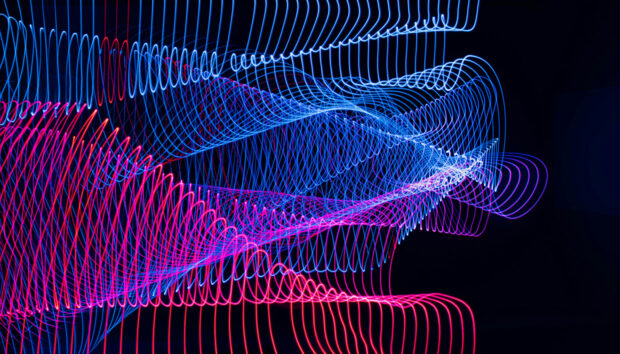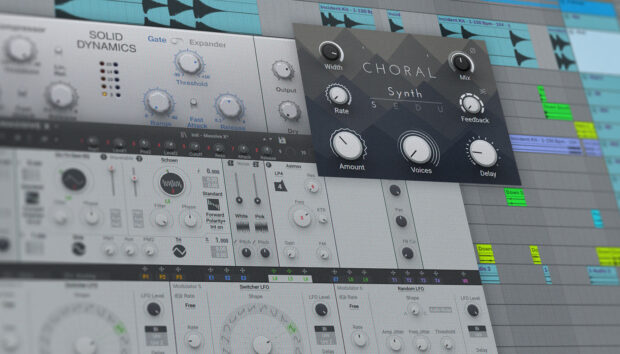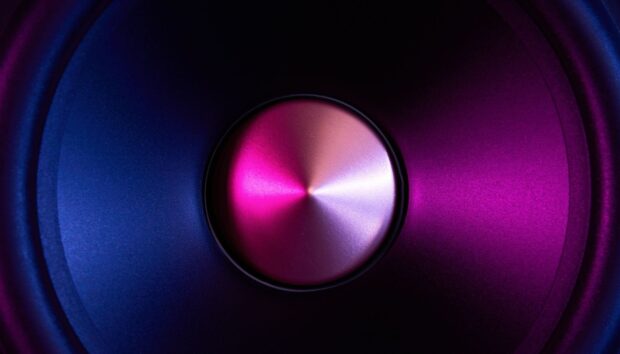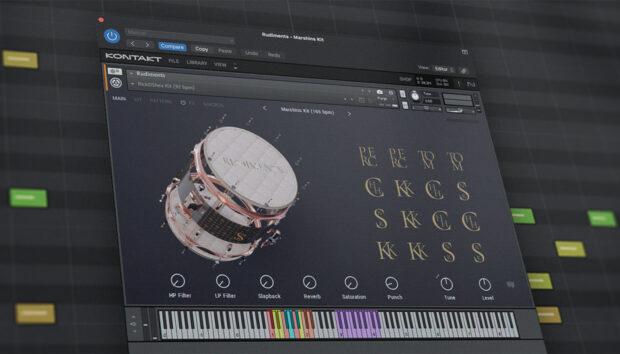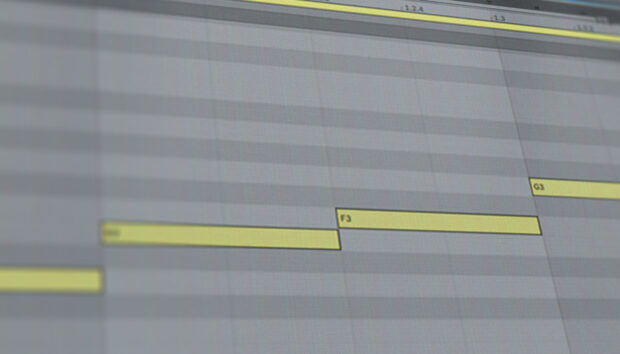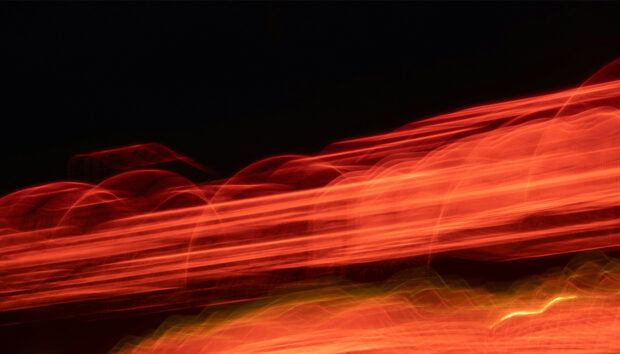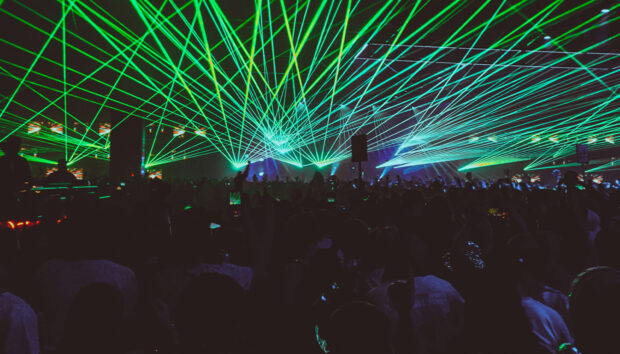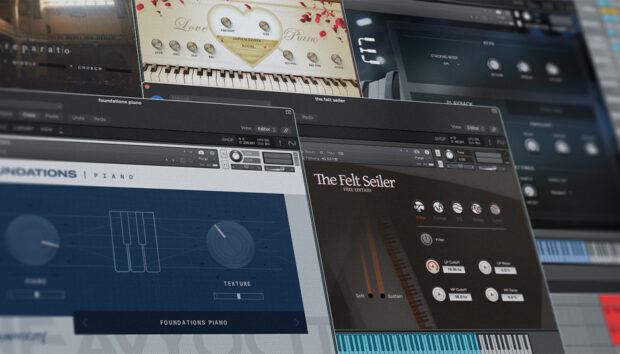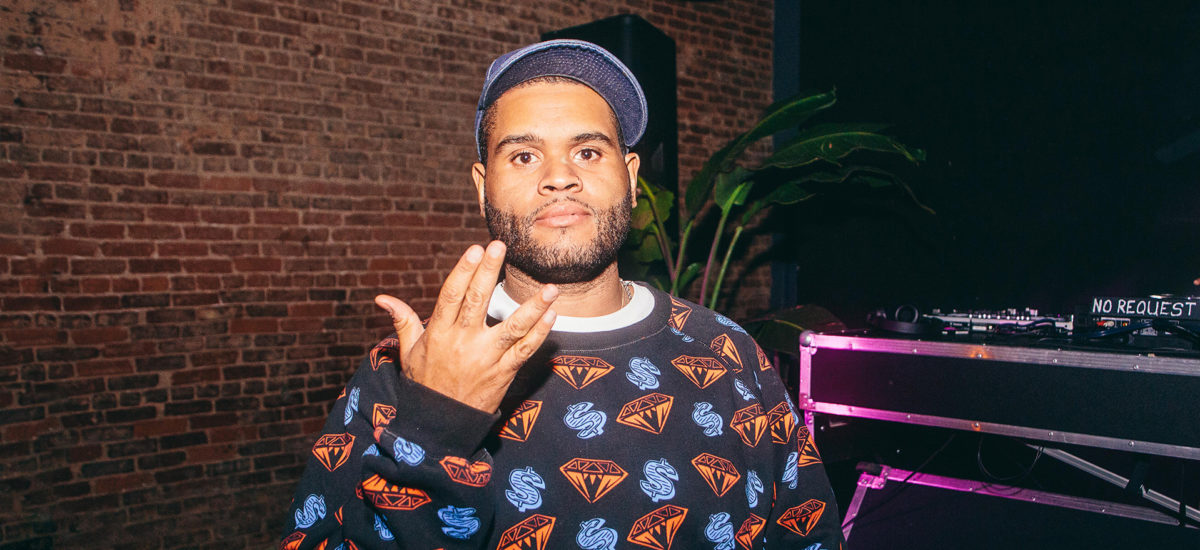
The son of music business legend Antonio “L.A.” Reid and singer/songwriter Perri “Pebbles” Reid, Aaron Reid grew up surrounded by music. First recognized for his appearance on MTV’s reality show “Super Sweet 16” — Kanye West was among the performers booked for his 16th birthday party — Reid is now producing music, as well as samples as A Team Samples. We caught up with Reid in Atlanta, where he’s been working on Usher’s new album, and discussed his musical lineage, vision for movie-themed sample packs, and learning to love the guitar.
How’d you first get turned on to creating samples?
I’m connected with a lot of producers and managers. One manager that I met worked for Shady Records, which of course is Eminem’s label. So when we met, I was trying to get him some beats to give to Eminem, because he’s my favorite rapper. I sent some beats, and he hit me back immediately, saying, “I love this, but Em’s album just wrapped up so there’s not a lot that I can do. But — I love these sounds, and I’d love to connect you with some of my guys.” So he started to explain what they do, which is that they create original samples. And I was like, “Okay…give me an example.” I didn’t know what he meant, but he kind of walked me through it and gave me examples, and he connected me with someone who was doing this very successfully — someone who is know a friend of mine, known as G Koop, who co-produced Migos’ Bad and Boujee with Metro Boomin, off of an original sample. Once he opened that up to me, and G Koop walked me through it and showed me what it was, I kinda fell in love with it. Now I use my guitar loops and samples as co-production — I send them out to huge producers, and they use them. It’s crazy.
What’s been your instrument of choice for samples?
Lately, the guitar loops have been my quickest placement. I would basically provide a loop — my original guitar loop, for instance, which would be used throughout the whole song. I’m great with programming drums, but I only love doing it on certain things now, instead of doing it for everything. Now I’m like, “I’m gonna send this to London on da Track, or I’m gonna send this to Metro Boomin” — sending it out to collaborate and get people’s perspectives on it. And what you get is much bigger.
What’s your process like?
If it’s for a specific artist, or a specific producer, what I pretty much do is I’ll create something special for them — something I haven’t given to anyone else. That way, our relationship starts out that way — I’m giving you something that someone else doesn’t have, and if you don’t like that, then I’ll play you some of the other stuff I have. What’s crazy is that I’ve never really used Pro Tools until now; I always used Logic. Now all my programs are different; I use Ableton, Fruity Loops, and Pro Tools.
Why’d you switch over?
To be honest I was getting bored of Logic, and I wanted a different way to create. My friends’ sound sounded different from mine, and I was trying to figure out why. Not that my music wasn’t dope — it’s always been dope — but their sound was different. I wanted their sound, mixed with my sound. I fell in love with both of them immediately.
What was the process of putting together and releasing your A Team Sounds sample pack like?
This was my first time, and it was awesome. It helped me know that I can do it for a lot of people — it’s something I really enjoy, because the more work people hear from me, the more famous I become, whatever — my sound is the most important thing to me, and I want people to be able to have a piece of my sound. And I want people to think about the creation process differently — I want them to go to my stuff for the stuff that they could never create. It’s just like, “I need something crazy right now.” You know what I mean? And I want to transition to doing more analog stuff.
You were obviously around a lot of music growing up. What was your own personal introduction to music creation?
I grew up in music, in the music industry. My dad is a great producer, and my mother is a singer. I always looked at it like something I wanted to do, but I wasn’t exactly sure what I wanted to do — I definitely wanted to do music, I just wasn’t sure what part of it. I knew I could sing and I knew I had rhythm, but it was yet to be proven that I could make a beat or write a song.
So before I went to college, there was this summer program I went to that prepared you for college. In this program, you lived in the dorm — it was just like college, really. I had this new Mac computer, and on my Mac I found GarageBand. And I was like, “What is this?” I kinda just started to mess with it, and then probably within a few days I’d made a beat. And my friends liked it [laughs]. And they were like, “Oh this is dope!” And they rapped on it or whatever, and after that I was like, “Okay, I can do this.” I had the confidence, but I didn’t know exactly what it was going to be. So producing just kinda came natural for me. GarageBand turned into Logic. And I listen to Kanye West a lot, and he said that he made five beats a day for three summers, and I did that too. I was also working for Sony Music. I had so much stuff going on, but it was awesome.
Also, I started playing the guitar four years ago, which totally changed my life. After playing the guitar, I really found myself as a musician and as a person. I just really love it. I have like a 90s almost grunge but like R&B kinda rock riff, and that’s just natural to me. It’s like Hendrix almost, but it’s new.
Have you managed to find some interesting ways of organizing or putting together the packs you’re releasing?
I want to use themes — using a movie of some sort to inspire the pack, for instance. So I think that’s gonna be really awesome, because it’s going to sound very big and very cinematic, and I want it to sound like something that would be in a movie, or just, you know, an original sample that’s amazing. I’m happy you asked that question, because I’ve been searching for a way to do it and I just figured it out.
This one was about just being natural, not trying to force anything. The drums are hard, but not too hard — they’re hitting at the right spots, so it’s like, “This is good. I would never think to make this.” Very organic and natural. The next ones, I want them to be maybe a bit spookier, a little bit more dark, you know? But still like very beautiful.
People always want to know what my sounds are, so this is a good way to show them.








